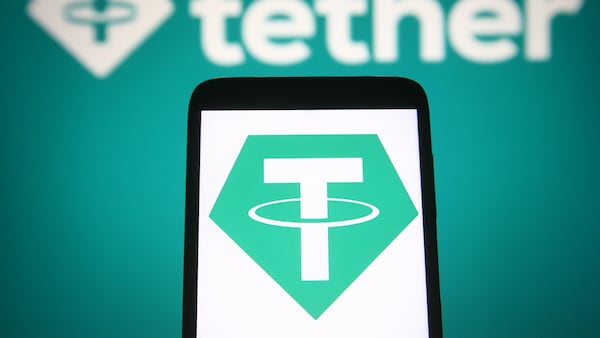- Exchange says application marks next step in its regulatory strategy.
- Top crypto firms race to integrate with the US banking system.
- Banks have pushed back against the applications.
Crypto.com is applying for a national trust bank charter, becoming the latest major crypto player to pursue a federal banking license.
The crypto exchange has joined a slew of industry players that have applied with the US Office of the Comptroller of the Currency for such a licence.
“Building the Crypto.com product and service portfolio through regulated and secure offerings has been our focus since day one,” said Kris Marszalek, Crypto.com’s co-founder and CEO. “We are excited to take this next step.”
If successful, Crypto.com’s application will place it under the purview of the OCC, subjecting it to the same capital, liquidity and risk standards as traditional banks. It will enable it to operate nationwide without the hodgepodge of state-level trust registrations that have long constrained crypto firms.
Market watchers, such as Chris Colson, payments guru at the Atlanta Federal Reserve, have said these moves will likely drive institutional and cross-border adoption of their services.
The wave of OCC applications highlights how crypto companies are leveraging the friendlier US regulatory climate to position themselves.
The OCC, now led by Jonathan Gould, has signalled openness to approving more crypto banks following its conditional greenlight for Erebor Bank, a digital assets-focused institution backed by venture capitalist Peter Thiel.
In a letter this summer, banks warned that these applications raise “significant policy and legal questions” and that approval would mark “a fundamental departure from existing OCC precedent.”
The big rush for federal licences comes four years after Anchorage Digital Bank’s pioneering 2021 OCC charter, which made it the first regulated crypto bank in the US.
Here are six crypto companies that have applied for national trust bank charters so far.
Crypto.com
Crypto.com’s application marks its latest attempt to bolster its regulatory bona fides. It already operates a qualified custodian in the US state of New Hampshire and recently secured a MiFID licence in the EU.
The company said the new federal charter would further position it “as the custody service destination of choice, particularly for digital asset treasuries, exchange traded funds, and other corporate and institutional investors.”
Ripple
In July, Ripple also applied for an OCC charter, as part of its long-term plan to expand RLUSD, its USD-backed stablecoin.
Unlike USDC, RLUSD has seen slower adoption, with a market cap of roughly $469 million, ranking 20th among stablecoins.
The company has also applied for access to the US Federal Reserve’s master account, which would allow it to settle payments directly on Fed rails, a privilege granted to very few non-banks.
The OCC charter would permit Ripple to act as a regulated custodian and hold reserves on its own balance sheet.
Chris Perkins of CoinFund told DL News earlier this year that Ripple is assembling the regulatory and infrastructure pieces needed to “build a very successful and scalable stablecoin.”
Circle
Hot on the heels of its $1 billion initial public offering, Circle applied for an OCC charter, the company announced in June.
The benefits for the USDC stablecoin issuer are plenty. Right now it relies on traditional custodians like BNY Mellon to hold its over $60 billion in reserves. A national trust charter would enable Circle to oversee its reserves directly.
The move also positions Circle to serve institutional clients more efficiently, offering custody and payments infrastructure under a unified, regulated framework. While trust banks do not offer deposit-taking or lending services, a charter would allow Circle to act as a federally regulated custodian, strengthening confidence in its stablecoin
Coinbase
Earlier in October, flagship US crypto exchange Coinbase announced that it had also applied for an OCC charter as it looks to deepen regulatory alignment and scale beyond its current New York state-regulated framework.
While the company emphasised it has no intention of becoming a bank, an OCC charter enables Coinbase to bridge the gap between digital assets and the traditional financial system with greater clarity and oversight.
If granted, the federal charter would streamline product approvals and regulatory reporting, providing a foundation for broader institutional adoption of crypto services, the company said.
Paxos
Paxos, the company that issues PayPal’s $1 billion stablecoin, applied for a national trust bank charter in August.
Paxos’ August submission, which revived its stalled 2020 bid to create a federally regulated digital asset bank, which expired in 2023.
The renewed bid comes amid increased regulatory scrutiny. In August, Paxos settled with New York’s Department of Financial Services for $26.5 million over due diligence failures tied to its former relationship with Binance.
Bridge
Bridge, the stablecoin firm acquired by US fintech giant Stripe earlier this year, also applied for an OCC banking charter, co-founder Zach Abrams announced on X in October.
“The charter would allow Bridge to operate under a unified federal framework consistent with the Genius Act,” Abrams said.
“We’ve long believed stablecoins will be a core, regulated financial building block. This regulatory infrastructure will enable us to tokenize trillions of dollars and make this future possible.”
Lance Datskoluo is DL News’ Europe-based markets correspondent. Got a tip? Email at lance@dlnews.com.





